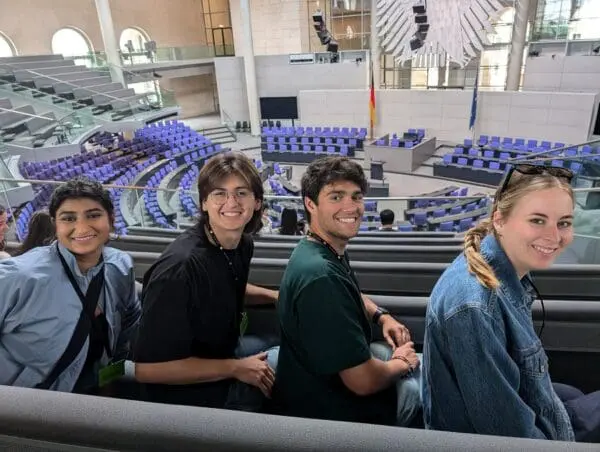
Amsterdam, Netherlands
Legal Constructions of Race in the Netherlands
When:
06 July - 17 July 2026
Credits:
0 EC
Read more
Social Sciences
When:
16 August - 27 August 2021
School:
Institution:
Goethe University
City:
Country:
Language:
English
Credits:
4 EC
Fee:
500 EUR

In case that an on-campus Summer School is not possible due to the Covid-19 pandemic, this module will take place online.
The notion that the current geological epoch should be called the Anthropocene – a new era starting at least with the industrial revolution in which humans have such a significant and lasting impact on earth’s geology, atmosphere, and ecosystems it should be named after them – has gained enormous momentum since its first proposal around the turn of the millennium. While geologists still debate if the Anthropocene should be a new geological epoch, when it starts and how it could be defined, its already widespread use in public discourse, especially with reference to the climate crisis, ecological pollution and threats to biodiversity, has turned it into a compelling concept. However, as undeniable as these dire consequences of human behavior are, the very concept of the Anthropocene poses also questions, challenges and pitfalls not least for and in the humanities: Based on assumptions and biases contradicting postmodern concepts of subjectivity, agency and cultural performativity in the humanities, it challenges those theories that try to overcome the modern division between nature and culture, the seemingly ‘naturally given’ and the humanly ‘made’. On the one hand, instead of furthering our understanding of the historicity and the cultural, linguistic and performative practices of concepts of humanity, nature, subjectivity and agency, an all too naive understanding of the Anthropocene threatens to re-install the (western/ white) Anthropos as origin, norm and purpose of all actions. On the other, the origins, possible consequences and repercussions of the age of the human are not only central in theoretical debates, but are part of wider political, cultural, literary and filmic discourses, which in turn shape our understanding of and approaches to the Anthropocene.
This two-week module for advanced bachelor and master students wants to give a broad and critical discussion and different perspectives on the Anthropocene from the point of view of several disciplines of the humanities. Discussing among other things the theoretical implications, underpinnings and biases of the concept, its historical roots and predecessors, and its cultural and political implications and challenges, the module also wants to look at some examples of its impact on and treatment in literature and film.
The course comprises 28 contact hours (8*3.5 hours). Upon successful completion, 4 ECTS (European Credit Transfer System) points will be awarded for the module. A single ECTS point is defined as the equivalent of 25 to 30 hours of student workload. This includes class hours, additional preparations for class activities, readings, assignments as well as final assessments.
Attendance: Participants have to attend at least 80 % of the classes.
Advanced Bachelor’s or Master’s students in the Humanities, preferably with background in Cultural, Literary and/or Film Studies.
Fee
500 EUR, Includes all study materials and transcript of records.
When:
16 August - 27 August 2021
School:
Institution:
Goethe University
Language:
English
Credits:
4 EC

Amsterdam, Netherlands
When:
06 July - 17 July 2026
Credits:
0 EC
Read more

Madrid, Spain
When:
29 June - 24 July 2026
Credits:
12 EC
Read more

Berlin, Germany
When:
05 January - 23 January 2026
Credits:
6 EC
Read more